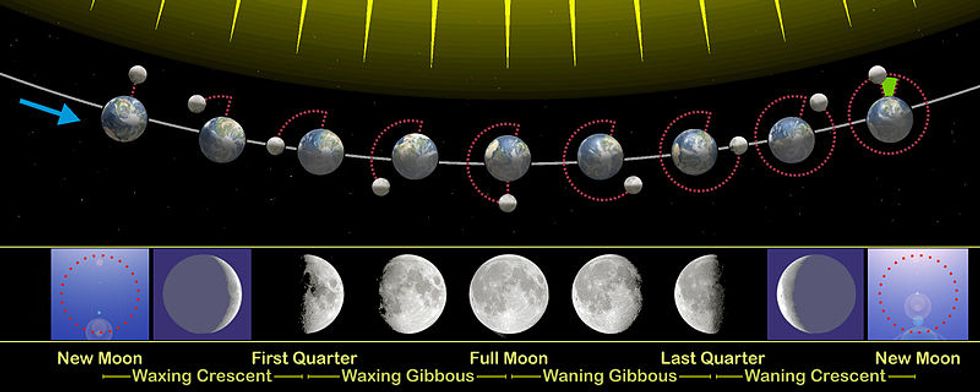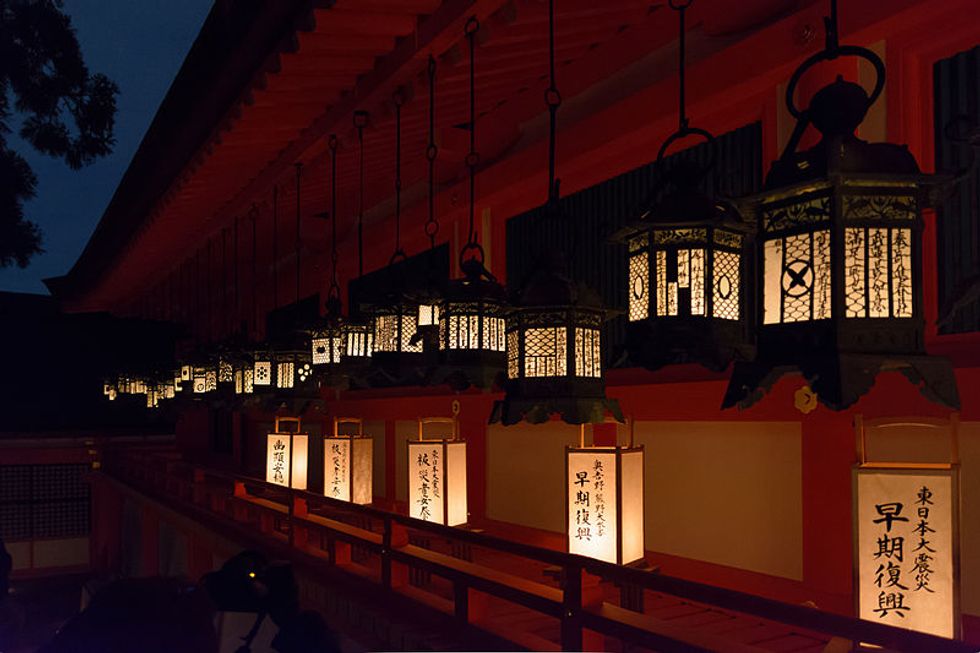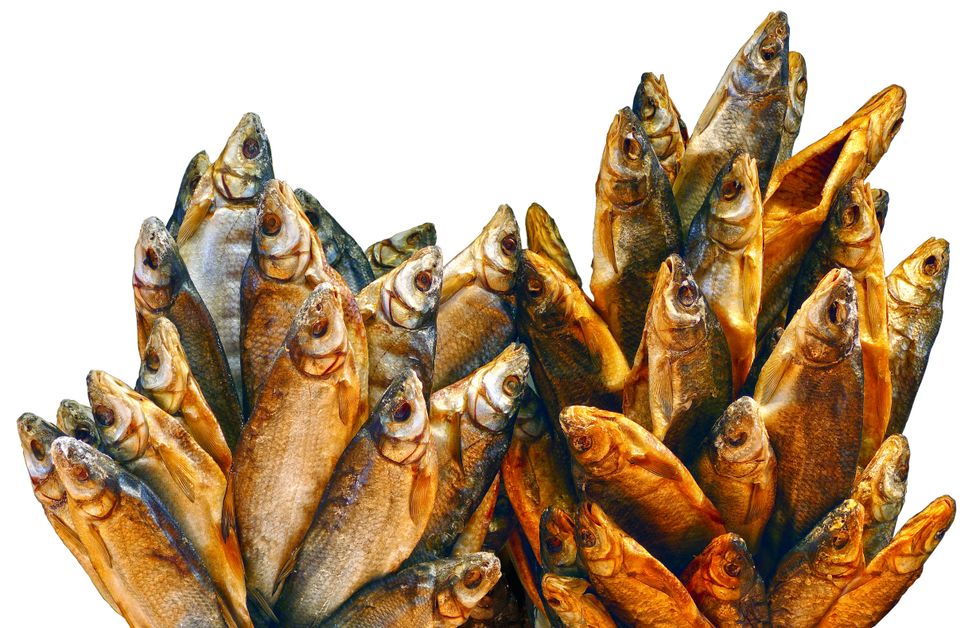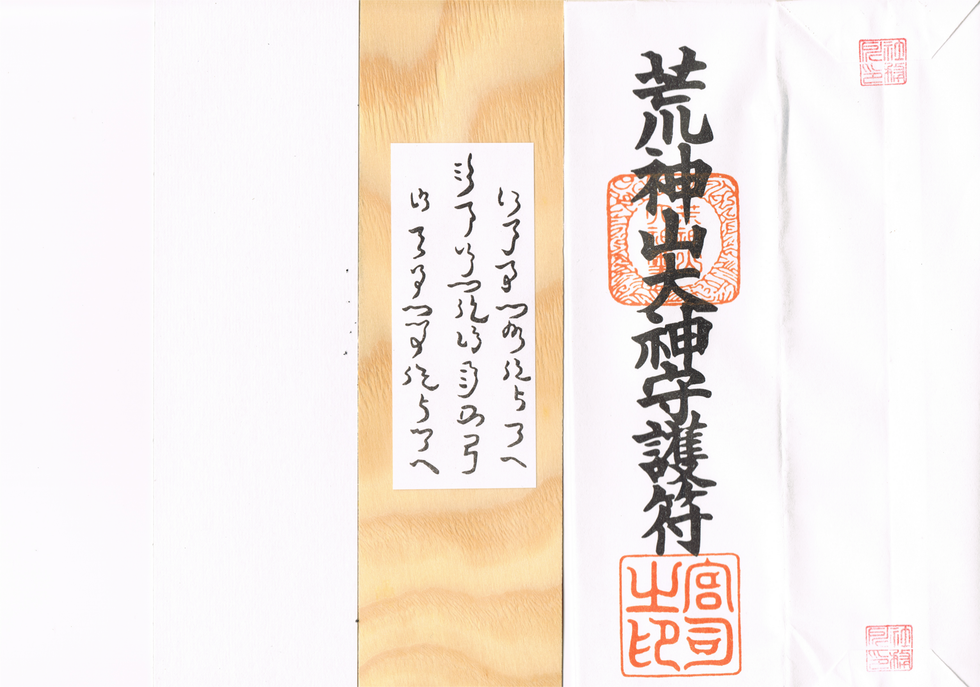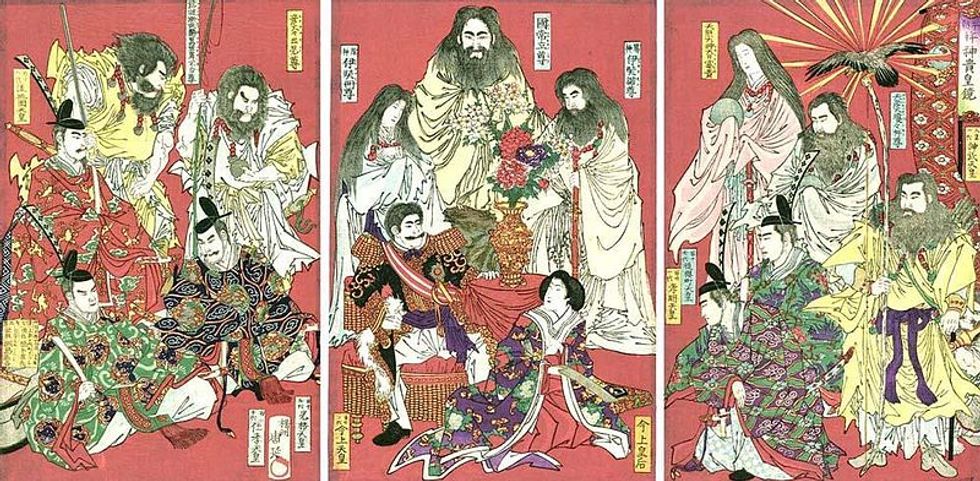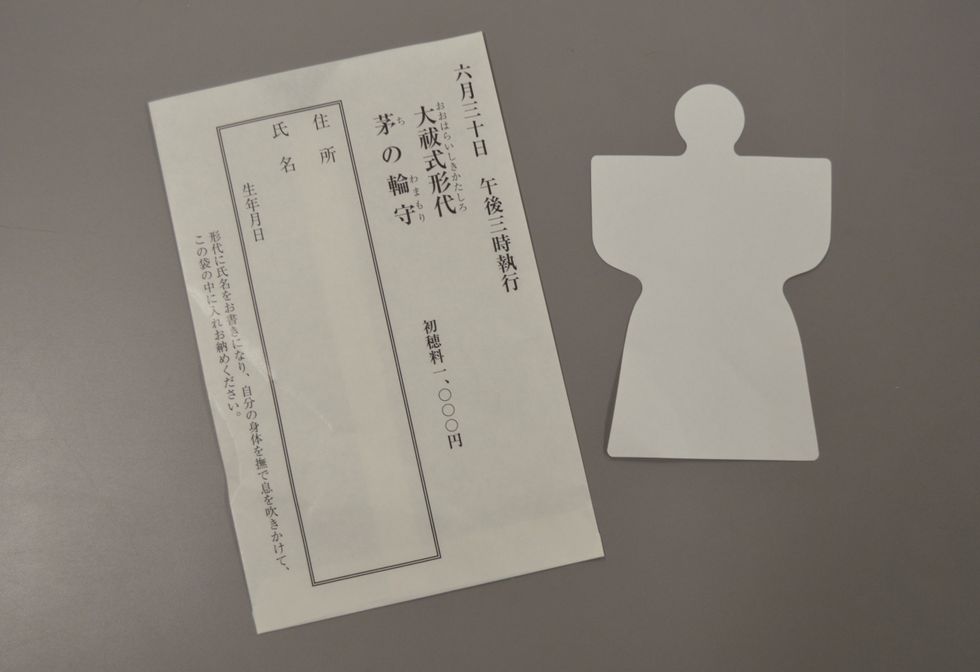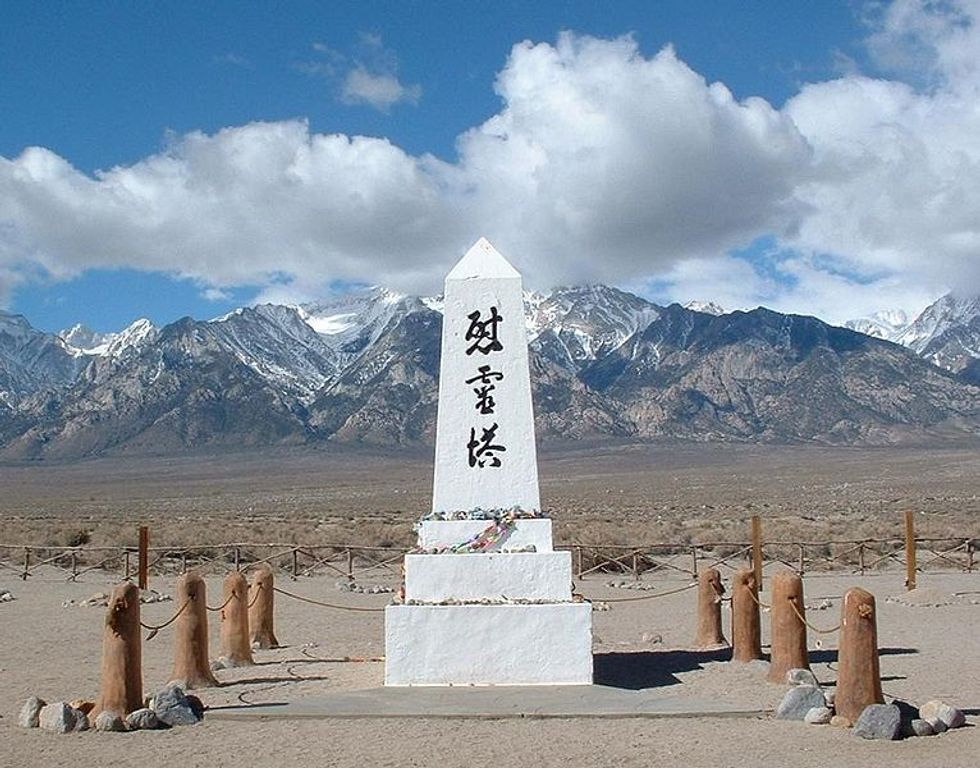Onmyōdō is the practice of directing luck, literally meaning “the way of ying-yang.” A practitioner of Onmyōdō is called an onmyōji. Usually they were a priest of either Shinto, Buddhism, or Taoism. Their practical skills included calculating the year’s calendar, divination, ofuda (purification and exorcism), and summoning shikigami, small ghost minions.
1. Know your lunar phases
Japan uses a lunisolar calendar, different from the standard Gregorian which requires little calculation other than a leap year. This is because many Japanese holidays fall on significant lunar and seasonal events, such as equinoxes. It’s important to coordinate festivities with astronomical events. It’s a buzzkill to plan a party only to miss the full moon. Trust me; the emperor would not be happy.
The job of the onmyōji was to make such a calendar and then predict the auspiciousness of the given events. Eclipses were unlucky due to their tie with the end of days. To counteract this poor luck, the emperor would need to declare the eclipse ahead of time, thus making it less scary. Enter: Onmyōji.
To get better luck, involve yourself in some of the lunar events. Participate in a moon-viewing party or go solo for a midnight picnic! Celebrate the changing of seasons with the equinox. Many cultures have traditional practices for the equinox. Try some of your heritage!
2. Purify your life from evil influences
Once you’re able to calculate the proper seasonal divisions (there’s twenty-four) using celestial longitudes that correspond with the seasons, you can start learning the proper rituals of purifications for each. Hold on a minute; it's way less serious than you think. No math, I swear.
The most important ceremony is called setsubunsai. It literally means “seasonal division ceremony” and marks the beginning of spring. Coincidentally, this is also right before the Lunar New Year’s Eve. See, no math.
On this day, which is usually the 3rd or 4th day of February, Japanese people expel or exorcise evil spirits from their homes. Think of it as spring cleaning on a whole new spiritual level.
In older times, people would hang up dried fish and chant to drums, which would clearly chase off anyone. If you want to skip the dead fish stench, it’s also appropriate to just roast some beans and toss them around your home while shouting, “Get out Ogre! Come in Happiness!” And yes, coffee beans count.
3. Make a magical talisman
The Japanese call these talismans ofuda or shinpu. They’re written on paper, wood, cloth, or metal then hung around the house. They ward off evil spirits and attract luck, health, wealth… you name it!
To make one, you inscribe a piece of paper with the name of a kami (spirit/god) and a Shinto shrine associated with it, you know, for authenticity. Kami doesn’t help just anyone. Attach the talisman to a pillar on your porch, the front door frame, or your bedroom ceiling.
Some popular kami: Ebisu, a god of fortune. Omoikane, the deity of wisdom. Amaterasu Omikami, the sun goddess.
4. Katashiro: Japanese voodoo
To rid yourself of evil influences, karmic pollution, and other transgressions, create a Japanese voodoo doll! It’s not really a doll, but a humanoid paper figure. In olden times, Japanese would regularly have onmyoji rid them of toxic elements. They would do this monthly, and I suggest you do, too!
To transfer your essence onto the hitogata (the paper doll), rub the paper on yourself or breath on it. Then a ritual is performed asking the gods to you purify you. After that, you must throw the paper into running water to wash away your impurities.
I find it interesting the similarities between this purification ritual and baptism. There’s something powerfully cleansing about water.
5. Bring back your dead grandma
Taizan Fukun no Sai. Translation: The ritual of Lord Taizan. He’s the god of Mount Taishan in Shandong, China. Oh, and also one of the kings of Hell. Hey, if you want to see your grandma, you got to talk to the head honcho.
This is a rather simplistic ritual, despite the seriousness of its power. You will need to petition Lord Taizan, Great King Enma, and the other judges of Meido and Jigoku. I know, it’s a lot of people; write it down before you start.
Then you need to make an offering. Think, gold, silver, silk, jade… or a human sacrifice (not your kid because the government knows you have them). Then detail out to the gods exactly what it is your wanting from them. Write a formal letter of request and mention in it your good qualities as a moral human being, like deciding not to sacrifice your screaming toddler.
And Bam! Grandma’s back in action. Though her body might be a little well-worn. It’s best to use this to extend your life, save someone from dying, or resurrect them right after death. Just saying.


